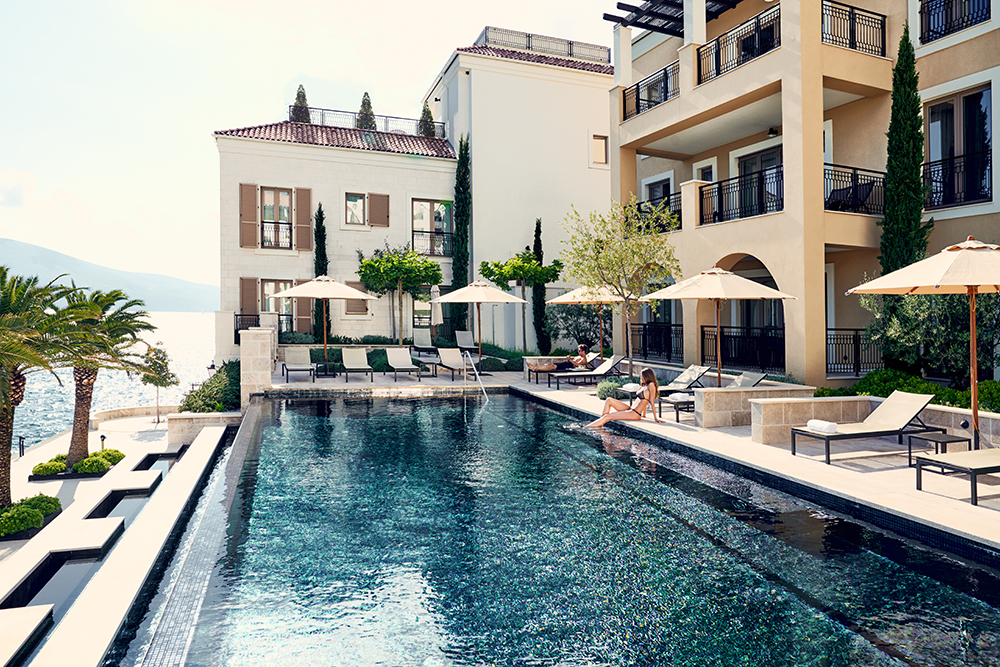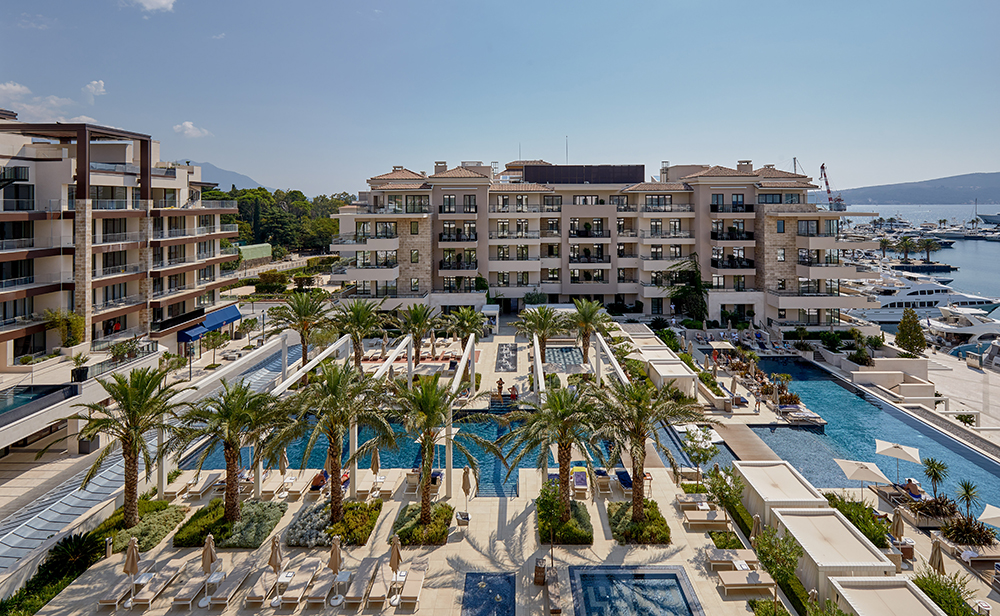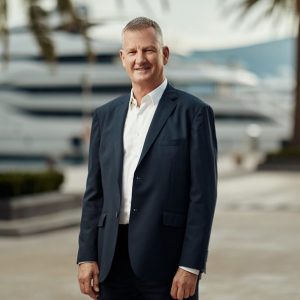
Brennon Nicholas, Sales and Marketing Director at Porto Montenegro, discusses the key desires for home buyers that luxury property developers should consider in a post-Covid market.
Without a doubt, Covid-19 has changed the face of international travel and our lives, transitioning suddenly from relatively unrestricted freedom of movement to a world of travel corridors and compulsory self-isolation. Despite this, for those looking for a second home abroad, the pandemic has not created the deterrent some had expected. New opportunities have arisen, cementing the potential of second home offerings.
One of the most exciting real estate opportunities available for those looking to invest in an overseas property at the moment is the Citizenship by Investment model, active in several countries in Europe. The scheme allows the investor to obtain a second passport through affordable investment in the country; for example, the programme in Montenegro requires an investment in property with a minimum of €250,000 for homes in the north of the country and €450,000 for coastal properties, along with an additional €100,000 donation to the Montenegrin government. The passport obtained provides multiple benefits to the investor, such as visa-free access to 124 destinations, including Europe’s Schengen Area, and citizenship in an official EU candidate country, which can be incredibly valuable with the current restrictions in place across the world.
Much research in light of the pandemic has pointed to steady growth, and in some areas, even a rise, in interest for second homes overseas. The UK property portal Rightmove reported a spike in searches for overseas homes, with more than a million searches recorded on one day alone and searches for the month of June up by 28 per cent from the previous year.
A Place in the Sun reported similar surges, with a 93 per cent increase in users searching for dream overseas homes during May. The study of 5,000 respondents also found that 38 per cent said their plans to buy property abroad were unaffected by Covid-19, and for 20 per cent of these, it had made them more motivated to relocate to sunnier regions.
However, developers in second-home markets cannot become complacent. Luxury developers must adapt to the changing needs and wants of consumers as we enter into this newly adapted way for living. Through my role as Sales and Marketing Director at Porto Montenegro and, being located on-site, I have a front-row seat to the changing behaviours of second-home buyers and I can pinpoint three major observations.
Outdoor space
In the world of lockdowns and stay-at-home orders, it comes as no surprise that access to outdoor space is now a non-negotiable for home buyers. A Knight Frank report found that in a home purchase, 66 per cent of people said that having a large garden or equivalent outdoor space was more important than before the pandemic. This is particularly important for families with children and for professionals with a relentless work-from-home schedule.
At Porto Montenegro’s new Boka Place neighbourhood, each home has private balconies or secluded garden, allowing plenty of opportunities to get fresh air. In addition to personal outdoor space being non-negotiable, we have found that the spacious and green communal neighbourhood areas and the natural playground around Boka Place have also been a sweetener in closing deals.
Developing wellness
A focus on wellness has been another well-documented result of the pandemic. Already heavily linked with the luxury property industry, the demand for health facilities in purchases has never been higher. The onus is on luxury developments to ensure wellness is featured both within the home and forms part of the amenities offered; the success of the development will depend on it.
JLL’s Global Real Estate Transparency Index found that health and wellness were hugely important for respondents moving forward in the midst of the pandemic. Through my conversations with buyers and prospective buyers, the concept of wellness has become a prominent talking point when deciding on a second home.
In the heart of the Boka Place neighbourhood, SIRO is a new fitness-infused hotel by Kerzner International. Of the 213 residences in Boka Place, 144 will be SIRO-managed, allowing owners of these homes access to state-of-the-art fitness amenities including a wellness hub, 20-metre retractable pool, food lab, juice bar and infrared sauna. In line with SIRO’s philosophy, the apartments have been designed with wellbeing as a central concept, featuring large open spaces, built-in stretching and exercising units, air purifiers, ergonomically designed furnishings and sustainably neutral materials.
Community and convenience
As the pandemic ripped through major cities, it is little surprise that there has been an exodus of people moving to rural or suburban areas. You might have even seen the stories of people moving out to extremely remote areas, but quickly moving back as they realised how important it is to have a community and amenities nearby. There is definitely a sweet spot; buyers want to belong to a community, but they don’t want crowds. Similarly, they want to feel like they are in a remote location, but with amenities available.
Markets such as Spain, Italy, Greece and France have remained buoyant this year, but other lower-density areas have also seen a new level of popularity, especially smaller and more remote countries such as Montenegro, known for its charm and smaller population, a significant tool in its successful approach to tackling the pandemic. In fact, a survey by a local agent, Montenegro Prospects, reported a general overriding response that Montenegro would remain of interest to foreign investors.
The increased interest in Boka Place and Montenegro as a whole is because it hits this sweet spot. Residents of Porto Montenegro have everything they need within a stone’s throw (including an international school) and a substantial number of full-time residents; there is a nice community here without the crowds you would see in other major European cities. Porto Montenegro is known for its lifestyle offering, including a diverse, year-round events schedule, shopping, restaurants, wellness and healthcare facilities, co-working spaces, schools, water sports and yachting. The homes are expected to attract a range of like-minded purchasers all connected in their desire to live differently, creating a community that’s accessible by all.
This idea of community has been prevalent in all my recent conversations with buyers, as people don’t want to live in new-build communities that are empty during the off-season. People are seeking homes where they can base themselves for longer periods of time than they would have considered in the past, due to the emergence of remote working. People want to be part of a vibrant and diverse community.
Despite the changes in the world as we know it, the desire and the demand for second homes will remain. Additionally, as we enter into a post-Brexit landscape, the competition will only get stronger as developments like Boka Place present the ideal investment. It is crucial for developers to cater to ever-changing customer desires including these new, Covid-influenced non-negotiables.
Brennon has 20 years’ experience in international real estate and has held senior management positions across both real estate agencies and development companies in southern Spain, previously owning his own Marbella-based real estate business. Brennon’s career took him to the GCC region, where he was responsible for setting up the International Residential Sales team for Chestertons, Dubai. In 2016, he was headhunted for the position of Commercial Director for Monte Rei Golf & Country Club, the number one golf course in Portugal and among the top ten in Europe.


